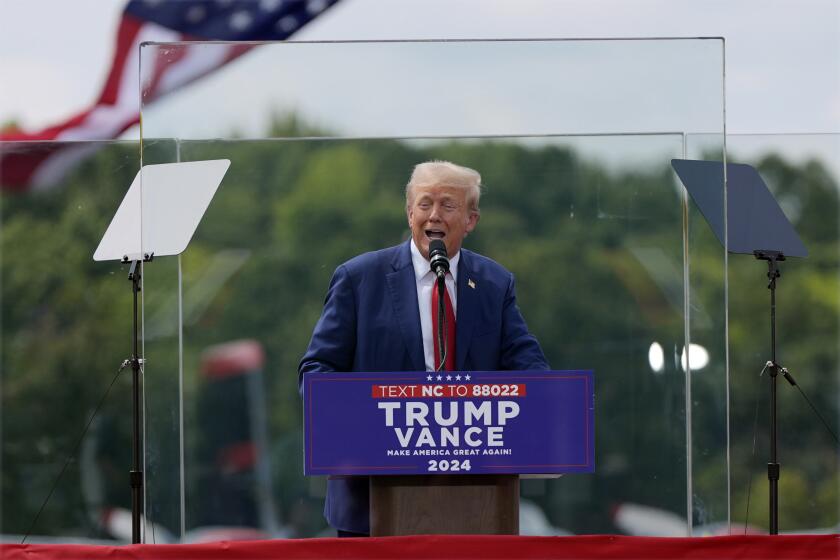Key Issues Stressed in Talks on Cambodia
Despite deep divisions, the contending sides in the Cambodian conflict bore down Tuesday on key issues in the search for peace, including the role of the Khmer Rouge guerrillas in any future government.
Completing a second day of talks here, the participants measured progress in tentative terms at best.
“We went into more specific details,” Indonesian Foreign Minister Ali Alatas told reporters. He said the session was marked by “lively give-and-take, a question-and-answer-type of discussion.”
But even in disputed areas where there was a hint of progress, Alatas used extremely tentative language to describe the discussions. On the question of forming some sort of body to administer a transition from war to peace, he said “there seems to be a beginning of a convergence of views on the possible need” for such an authority.
The talks at this resort city outside Jakarta have been billed as “preliminary . . . not negotiations,” in the words of Alatas, who organized the meetings, indicating the fragility of the diplomatic process in the face of years of enmity and war.
The possibility of a more dramatic turn in the discussions was raised Tuesday with disclosure that the feuding Cambodian factions will meet this morning with Prince Norodom Sihanouk, the longtime Cambodian leader.
Until two weeks ago, Sihanouk headed the resistance front, which has waged a guerrilla war against Vietnamese occupation forces in Cambodia and the government they installed in Phnom Penh, the Cambodian capital.
Sihanouk’s Son
The prince resigned as president of the front and is here as a guest of Indonesian President Suharto, not as a participant in the talks. Today’s session with the Cambodian factions, including his own, which is represented by his son, will be Sihanouk’s first direct foray into this round of diplomacy.
Among the faction leaders he will meet at a presidential guest house in Jakarta is Hun Sen, premier of the Phnom Penh regime, whom Sihanouk joined in two rounds of talks outside Paris last winter. But Sihanouk then broke off the talks, labeling Hun Sen a puppet of Vietnam.
According to Alatas, the participants have found tentative consensus in the following areas:
-- That the Vietnamese troops should withdraw. They invaded Cambodia in December, 1978, and now number at least 100,000, about half of the original occupation force. Vietnamese Foreign Minister Nguyen Co Thach implied at a press conference Tuesday that a full withdrawal must be tied to termination of military aid to the resistance guerrillas.
-- That “the Pol Pot regime” not be allowed to return to power in Phnom Penh. According to Thach, not even the delegates of the Khmer Rouge, Pol Pot’s guerrilla faction, objected to this. But the resistance delegates still support a provisional quadripartite government that would include the Khmer Rouge.
-- That some sort of transitional body be established to organize elections.
Sharp divisions remain on such issues as the deployment of a peacekeeping force and the timing and linkage of political developments to a troop withdrawal.
More to Read
Sign up for Essential California
The most important California stories and recommendations in your inbox every morning.
You may occasionally receive promotional content from the Los Angeles Times.










